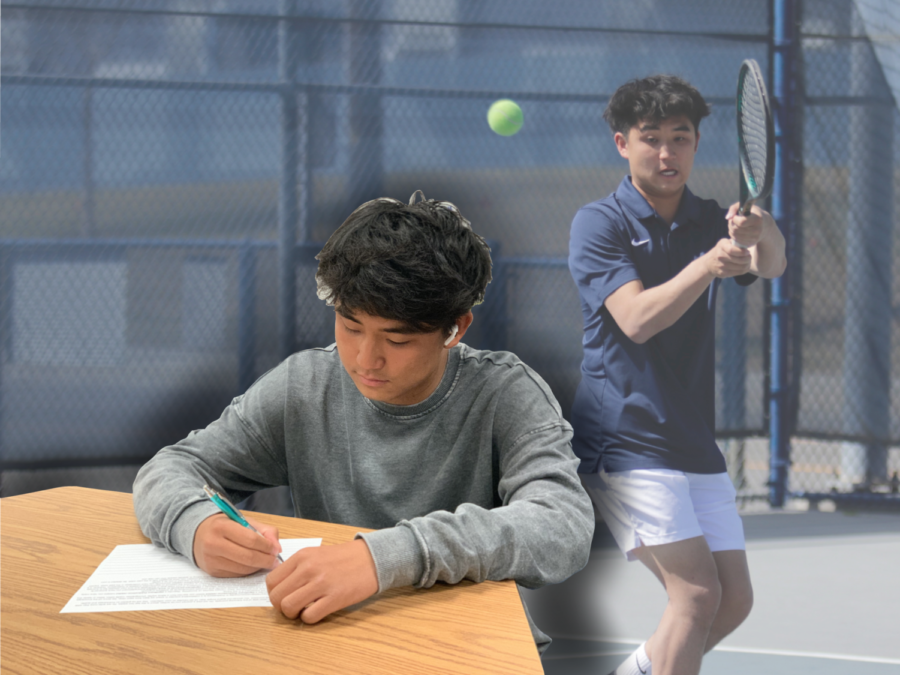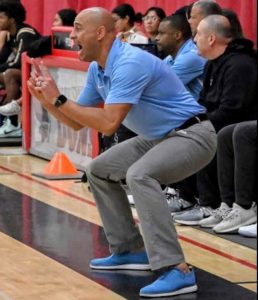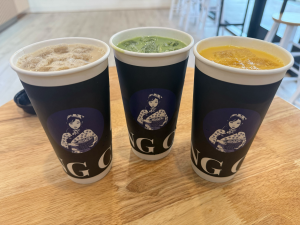Student-athletes juggle time commitments
Student-athletes report that they have less time to complete schoolwork and study in a poll sent out April 18. Both teachers and students agree that being a student-athlete requires time management and is a challenge with higher stress levels.
A double life | Tennis captain senior Evan Soema believes that while sports help him connect to his teammates, academics have always been more important. “I prioritize academics over sports because focusing on academics will give me a better future and career,” Soema said. “Sports are competitive, but I’ll continue to play in order to meet new people and exercise.”
May 2, 2022
There is a reason why “student” comes first in the title, student-athlete. Coaches and administrators recommend that academics are prioritized by implementing a grade point average (GPA) policy, but there are some aspects of committing to a student-athlete life that make it difficult to do so.
According to California Interscholastic Federation rules, if a student-athlete has less than a 2.0 GPA, which is equivalent to all C’s or lower, they have six weeks to raise it or they will become ineligible to participate in their sport. It is customary for coaches to watch their students’ GPAs to ensure this rule is enforced.
“[The rule is] important because in student-athlete, student is first,” Athletic Director Jerry Person said. “This is high school. This is a springboard into what you want to do when you get out of here and where you want to be in the future.”
Even with this mutual understanding between teachers and student-athletes, being in a sport can make it hard to finish homework in a timely manner.
“Sports amplify my stress about my grades and school to a certain extent because my time to study and do homework gets cut by a margin,” varsity water polo player junior Nayra Elhawary said. “In my opinion, sports are beneficial for time management skills, but it makes your time feel short and you feel pressured due to lack of time to get things done.”
Most student-athletes have to commit to all-day games or meets. More student-athletes reported that their practice takes 2-4 hours everyday in the poll. 78.1 percent of athletes also agree that less sleep and being tired after practice is a struggle.
“My grades could be a bit better because after training I would be tired and it would lead me to not properly do my homework and not study properly,” swimmer freshman Jayden Huang said. “[Meets] have taken time out of my weekend and it affected my schedule because with sports I wouldn’t have a relaxed day.”
In the end, student-athletes are aware of the sacrifices they must make, as the majority responded with only a “little impact” to school. The intention of the difficulty is to demonstrate a student’s ability to tolerate that kind of stress.
“I think some teachers understand the struggle to a certain extent,” Elhawary said. “[They] expect you to reach the same standard as all the other students who don’t do sports because they believe as a student-athlete you’re responsible for what you turn in just like any other student.”












